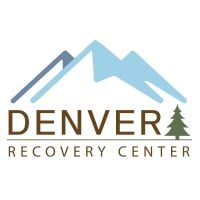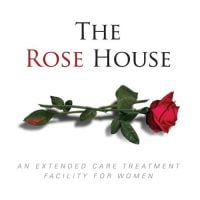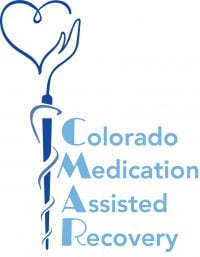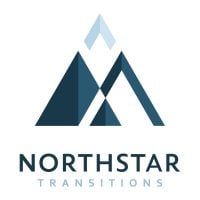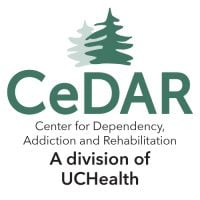Mental Health Partners
Drug Rehab Center in Broomfield, Colorado
Mental Health Partners in Broomfield, Colorado offers a range of outpatient mental health services, including assessments, counseling, medication management, crisis intervention, and psychiatric therapy, as well as evidence-based addiction and substance abuse services, such as counseling, medication management, family and group psychotherapy, specialized programs, and comprehensive aftercare services.
About Mental Health Partners in Colorado
Mental Health Partners is a mental health facility located in Broomfield, Colorado that offers a variety of outpatient services to help those suffering from mental health issues. The facility is licensed by the Colorado Department of Regulatory Agencies and the Colorado Department of Public Health and Environment and is accredited by The Joint Commission. Mental Health Partners provides comprehensive services such as assessments, individual and group counseling, medication management, crisis intervention, and psychiatric therapy.
Mental Health Partners provides a variety of evidence-based addiction and substance abuse services to help those struggling with these issues. These services include individual and group counseling, medication management, as well as family and group psychotherapy. In addition, they also offer specialized programs such as anger management, relapse prevention, and substance abuse treatment. The facility provides a safe and caring environment that encourages recovery from addiction and substance abuse. They also offer comprehensive aftercare services to help individuals stay on the path of recovery.
Genders
Ages
Modality
Additional
Conditions and Issues Treated
Levels of Care Offered
This center offers a variety of custom treatment tailored to individual recovery. Currently available are Outpatient, with additional therapies available as listed below.
Outpatient treatment consists of counseling and therapy sessions. The outpatient treatment process begins with the addict’s initial detox period, lasting about ten days. Outpatient treatment is used for those who are at moderate risk for “slipping back” into the addiction. It is also used for those who are not currently experiencing any side effects from withdrawal, can handle social pressure, have a stable living environment, and have a good support system.
Therapies & Programs
Individual Therapy is a crucial component of addiction recovery. Therapists work with patients to identify the root of their addiction and figure out how to better handle the issues that led to them using drugs. Individual Therapy is one on one sessions where people meet with their therapist. Individual therapy provides a safe space for people to open up and discuss personal and sensitive topics which they may not feel comfortable discussing in a group setting.
In this type of therapy, therapists can develop specific solutions for each patient, which helps speed up their recovery process. In addiction recovery, therapy is a crucial part. It allows patients to go deep into their core issues and discover how those problems can be better handled now. Therapy can be performed in individual sessions as well as group settings. In individual therapy for addiction, the patient meets with the therapist one-on-one to focus on the underlying issues of addiction and come up with solutions to prevent future abuse.
Addiction can take a heavy toll on relationships, damage the trust and intimacy that was once there. Couples therapy at Mental Health Partners helps to rebuild the trust and intimacy that has been damaged. An intimate relationship with a drug addict is not healthy for children or anyone in the family. Therapist help to rebalance family roles and create a healthier environment after rehab in Broomfield, CO.
Family therapy is a crucial part of drug treatment and getting sober. It is one of the most effective ways to help addicts stay on the path to long-term sobriety. One of the most important parts of family therapy is the relapse prevention plan. During treatment, therapists and doctors will often sit down with the addict and their family to develop a plan if the addict ever feels like they want to use again. This plan should involve steps the addict and family can take together to prevent them from relapsing in the future.
An addict’s family can play a vital part in helping them to avoid relapse because they can spot the warning signs and help them get back on track before it becomes too much of a problem. Family therapy is one of the most effective ways to help addicts stay on the path to long-term sobriety.
Group Therapy is employed by drug treatment centers like Mental Health Partners to provide the recovering addict with a platform to talk about their feelings and experiences. It also provides for an opportunity to learn from other addicts who have successfully overcome their addiction. It is recommended that all group members be recovering addicts for this type of therapy to work.
This type of therapy involves the use of a variety of therapeutic techniques to help addicts recover from past traumas that might have triggered their substance abuse. During these sessions, therapists will work with the addict to address painful memories and learn how to cope effectively with stressors as they arise.
During these types of sessions, therapists will typically focus on three main goals:
- Identifying and expressing painful emotions associated with past traumas.
- Reducing the effects of stress on an addict’s life by developing more effective coping mechanisms.
- Developing healthy ways of thinking about stressful situations that can help addicts avoid substance abuse issues in the future.
This type of therapy is typically used in conjunction with other types of addiction treatment services. By identifying and dealing with the root cause of addiction, most addicts can overcome their cravings and prevent relapse once they leave rehab.
Many different types of addiction treatment services exist to help addicts safely get sober, but it’s important for recovering individuals to find a therapist or support group that will help them address the root cause of their addiction.
Dialectical behavior therapy (DBT) is a type of cognitive behavioral therapy that is focused on helping those with problematic behaviors caused by intense emotions and thoughts control and regulate their emotions and behavior.
Dialectic Behavior Therapy is beneficial for:
- People who have chronic suicidal thoughts and behaviors
- People who have chronic drug cravings
- People who have difficulty establishing and maintaining personal relationships
- People who have a mental disorder such as Borderline Personality Disorder
- People who have experienced trauma in their life
Cognitive Behavioral Therapy (CBT) is an approach and method in psychotherapy. Mental Health Partners asks people to investigate how their thoughts, including habitual, harmful, and inaccurate ways of thinking, affect behaviors. CBT is based on the idea that rigid, inflexible ways of thinking cause people to have a limited ability to cope with stress, which leads to emotional distress.
Likewise, CBT helps people identify maladaptive behaviors and replace them with more positive behaviors. It makes you look at the way you perceive something and ask: Is this a realistic belief? CBT asks people to look at the role of behaviors and emotional responses and how they may be distressing in one’s life. The goal of CBT is to change the way people think and behave to achieve a more balanced, healthier lifestyle.
Moreover, CBT has been shown to reduce some types of anxiety disorders, depression, and symptoms related to thoughts or actions that are considered harmful.
Patient Experience
Experiential Therapy at Mental Health Partners
Experiential therapy at Mental Health Partners includes helping people work through emotional disorders by participating in events in real-time. It moves away from conventional talk therapy to discuss their concerns and emotions by making patients play roles or use props. It allows people to handle trauma and feelings healthily, reducing the need to resort to alcohol and substances in Broomfield, CO.
Payment Options Accepted
For specific insurance or payment methods please contact us.
Is your insurance accepted?
Ask an expert, call (888) 674-0062
Mental Health Center of Boulder County Associated Centers
Discover treatment facilities under the same provider.
- Mental Health Center of Boulder - Warner House in Boulder, CO
- Mental Health Center of Boulder County - Longmont in Longmont, CO
- Mental Health Center of Boulder County - Maslin Recovery Team in Boulder, CO
- Mental Health Center of Boulder County - Bucknell Court in Boulder, CO
Learn More About Mental Health Center of Boulder County Centers
Additional Details
Specifics, location, and helpful extra information.
Broomfield, Colorado 80020 Phone Number(303) 466-3007 Meta DetailsUpdated November 25, 2023
Staff Verified
Mental Health Partners Patient Reviews
There are no reviews yet. Be the first one to write one.
Broomfield, Colorado Addiction Information
The Centennial State has slipped to a ranking of 12th in the country for drug abuse. Each year around 24% of the state's population uses illegal drugs while nearly 5% of its population abuses alcohol. Substance-related deaths in Colorado were responsible for 15.12% between 2008 and 2017. Fortunately, Colorado drug and alcohol addiction treatment are available to help a person overcome addiction.
In 2015 there were 948 people admitted to substance abuse treatment facilities in Broomfield County, Colorado, there were also a total of 43 deaths due to drug overdose in the same year. Opioids such as heroin and fentanyl were responsible for the majority of these overdoses. The most common types of drug treatment programs are outpatient, inpatient, and alternative treatments.
Treatment in Nearby Cities
- Evergreen, CO (23.6 mi.)
- Crawford, CO (159.1 mi.)
- Greeley, CO (39.8 mi.)
- Edgewater, CO (12.2 mi.)
- Lafayette, CO (4.6 mi.)
Centers near Mental Health Partners
The facility name, logo and brand are the property and registered trademarks of Mental Health Partners, and are being used for identification and informational purposes only. Use of these names, logos and brands shall not imply endorsement. RehabNow.org is not affiliated with or sponsored by Mental Health Partners.


